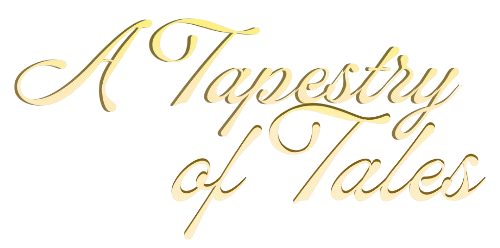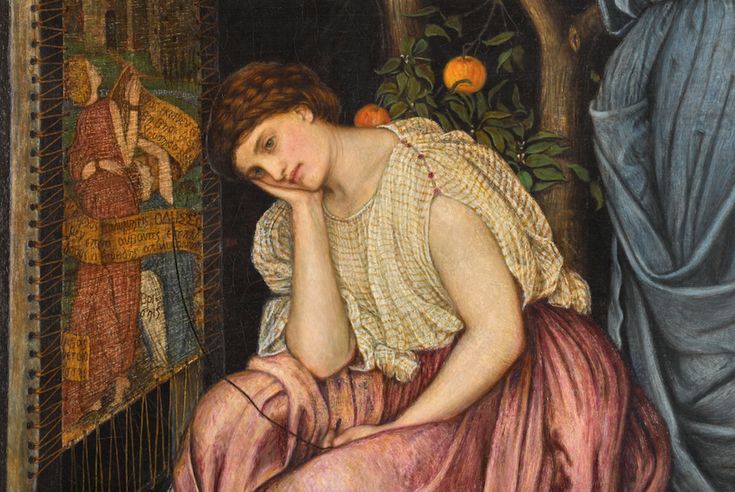For the longest time, I’ve always had the strangest of fascinations with the female figures I read about in my Greek mythology comics. The stories themselves were focused mostly on the men, and so were many of the readers, I’m sure – Hercules with his great feats of physical strength, Odysseus and his thousand cunning tricks, Jason and his crew of heroes, sailing across the turbulent ocean to defeat the wicked sorcerer of Colchis…These stories captivated me greatly, and delightful they were; still, I always seemed to find my gaze wandering towards the lesser-acknowledged stories anyway: Atalanta, a princess abandoned as a baby and raised by bears, who had hunted a great boar and evaded suitor after suitor with her light feet until choosing the man she wanted to marry for herself; the dancer princess Ariadne, who had risked the ire of her lord father Minos to aid the hero Theseus and guide him out of the labyrinth with a ball of thread, only to then be betrayed by him and left on an island where the god Dionysus came to take her as his wife. And thus was how I noticed – and must I say most remarkably of all – the story of Penelope.
I’ve been intrigued by Odysseus’s 20-year journey back to Ithaca in the Odyssey and the countless interpretations and retellings I’ve encountered ever since I’ve first heard of Greek mythology; even then, the little inkling of thought flickered in my mind, glittering in and out of sight like sunlight reflecting off the ocean’s waves: Odysseus may have been endeavoring to return to his kingdom, to his son and wife for twenty years, navigating his way through war and gods and monsters – but wasn’t Penelope also fighting her own twenty-year battle? Dutiful she was, fulfilling her roles as queen, as daughter-in-law, as mother, as spouse perfectly in her husband’s absence; she was loyal, and patient too, waiting quietly for twenty years for her husband to come home, despite the increasingly insistent hounding from the suitors on her doorstep seeking her hand. Patient, dutiful, steadfast, loyal, fully aware of her place in society and obediently doing what was expected of her – all the words that described what would’ve been a perfect woman by contemporary standards. But as Madeline Miller had said, having spoken through the thoughts of Circe in the novel of the same name: the words were all so tame, so pale and gentle and obedient, and entirely too soft to fully describe Penelope.
Because what kind of woman would’ve otherwise been able to rule a kingdom peacefully for twenty years as queen regent? What kind of woman would’ve been able to stall 108 men for 20 years, with none of them being any wiser to the subtle trickeries she’d set in place to hold them down, to keep them away from her kingdom’s stores, from her husband’s throne, her son, her body? She’d ruled Ithaca for twenty years while her husband was away at war, carefully preserving every piece of land, every store of resources, every last citizen of the kingdom, to lovingly place back into the hands of Odyseeus the day he finally returned home. She’d guarded Odysseus’ throne for twenty long years, fending off hundreds of young men eyeing Ithaca’s seat of power so their son Telemachus could grow stronger, bolder, so that her husband could come home and take back everything that was rightfully his. In a way, Penelope had always been set up to be Odysseus’s equal: every trick Odysseus could come up with, Penelope has one of her own to match. And to think she did all of it without ever truly “stepping out” of her role as the “perfect woman”; she knew what she was and wasn’t allowed to do, to say, to be, as befitting of her sex at the time, and used it to her advantage: tricking the suitors gathering at her doorstep for three years by playing the dutiful daughter-in-law and saying she would choose a man to marry once she finished weaving a burial shroud for her father-in-law, the previous king Laertes, only to unthread her weaving every night and starting over every day, so that the shroud may never be finished – taking clear advantage of what was obviously considered a “woman’s job” at the time and the men’s lack of knowledge about weaving to buy time, precious time for the man she loves to return. And love him she does – you cannot convince me that Penelope and Odysseus did not love one another – fiercely, determinedly, almost stubbornly, with every scrap of guile and wit she could conjure up. Or as Jorge Rivera-Herrans so eloquently put it in his musical EPIC: The Musical, based on the very Odyssey itself: “I’d rather die than grow old without the best of you,” as she prepared a challenge in which the suitors would have to string Odysseus’ old bow and shoot through twelve axes, an impossible feat for any man who was not her husband, her own quiet way of saying she would accept no other.
Penelope was – and still is – the figure I look to in moments of hardships, as a beacon of inspiration. Even moreso now that mythology has been more widely embraced by the media, with the rise in popularity for the old myths’ new retellings, most notably – as I’ve already referenced – EPIC: The Musical by Jorge Riverra-Herrans and Circe by Madeline Miller, two of my greatest inspirations and comforts as of most recently. The strength of her character, her knowledge of herself and those surrounding her, her ability to adapt and take advantage of the weaknesses and strengths she’d gleaned from the aforementioned knowledge, her patience and resilience in the face of unimaginable hardships, and even the love she’d shared with her husband Odysseus – all those I preciously tucked into my pocket, to remind myself to be just as patient, as clever, as resilient in the face of my own challenges, now and, as far into the future as I can possibly see, for much, much further in my life.


Để lại một bình luận